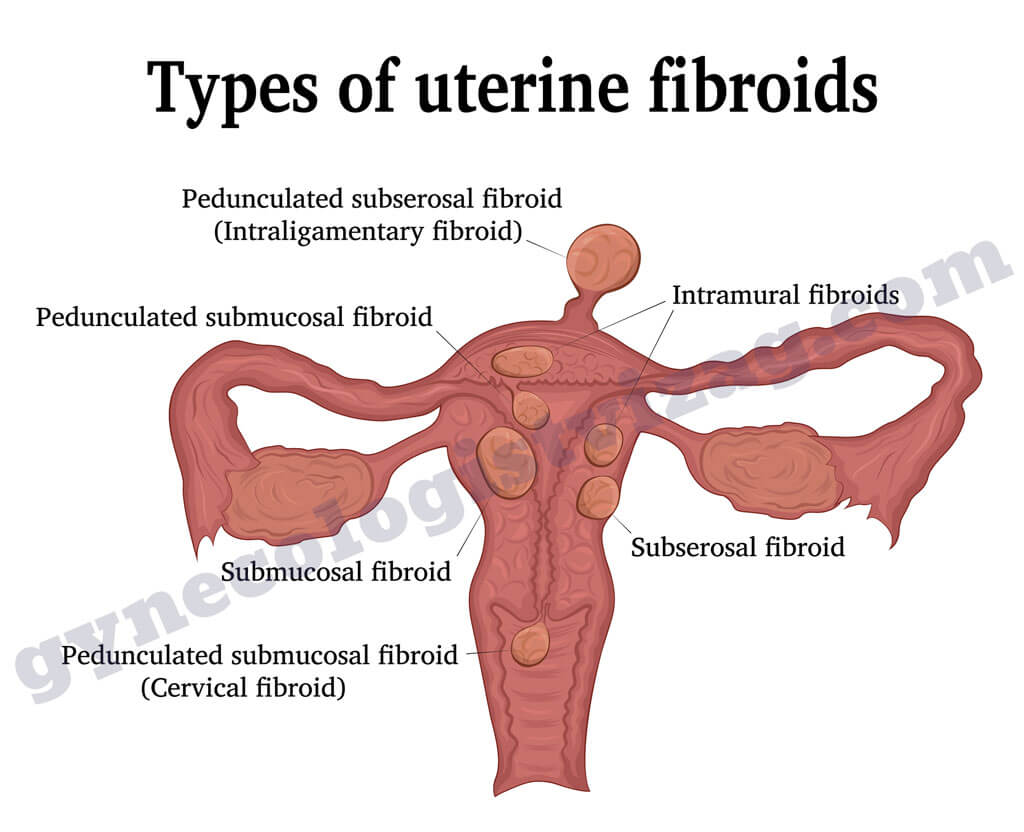Uterine fibroids are the most common tumours of the uterus. Uterine fibroids are benign nodules in the muscle layer, that affect immature cells. Mostly, women of childbearing age face this type of complication. Uterine Fibroid treatment should be done if they are showing symptoms of bleeding, pain etc.
The tumour may arise in different parts of the uterus. Depending upon their location, they are classified as intramural, subserous, submucous, cervical, and broad ligament fibroid. One can have multiple types of fibroid.

Causes of Uterine fibroid
The causes of nodes are still not known. However, their development is due to hormonal disturbances and endocrine abnormalities.
Risk factors
- Heredity: Women with a family history of fibroid
- Diet: Women who take a high-fat diet
- Others: Women with Nulliparity, obesity, polycystic ovarian syndrome or hyperestrogenic state.
Symptoms of Uterine fibroid
Symptoms of Uterine fibroid are different and depend mainly on the individual, the location of nodes, and the stage of the disease. Thus, the nascent nodes practically do not disturb a woman, (the majority of the women, i.e., nearly 75% are asymptomatic). However, an expansion of the same tumour can cause complications and may affect other organs. It may show the symptoms of profuse menstruation, inter-menstrual bleeding, pain in the uterus, pain during sex(dyspareunia), mass per abdomen, recurrent pregnancy loss, preterm labour, constipation, urination disorders, and infertility.
It would be best if you never ignore any irregularities or complications with your period and other symptoms mentioned above and consult a gynaecologist. Fibroid growth may accelerate during pregnancy because of higher levels of female hormones. They decrease in size during menopause because of the decline in estrogen levels.
Complications
Complications are mainly related to those cases where the tumour grows abnormally and affects other organs. This developed tumour can cause an increase in uterine weight (sometimes up to 3 kg) and compresses the bladder and intestines, leading to urinary disturbances and constipation. Sometimes it can progress into cancer (sarcoma). Heavy bleeding and a dangerous drop in blood haemoglobin levels are other complications. Without timely intervention, a fibroid can land in cancer.
Uterine Fibroid Treatment
Uterine fibroid does not show any symptoms in its initial stage, and that’s why you need regular checkups with a gynaecologist. Consultation once every six months can detect disease at an early stage, preventing its development and undesirable consequences.